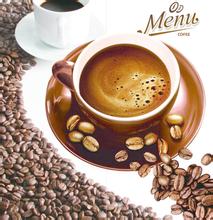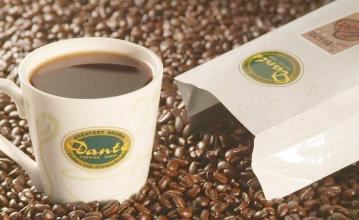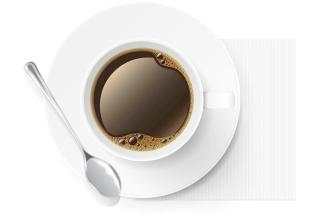Introduction of Salvadoran Coffee Flavor Manor with excellent balance
El Salvador's most recent government was formed in June 2014. The main Cabinet members are: Vice President Oscar Ortiz Oscar Ortiz, Minister for Foreign Affairs Hugo Roger Martinez Bonilla Hugo Roger Martínez Bonilla, Minister of Finance Carlos Caceres Carlos Cáceres, Minister of Economy, Tacis Salomon Lopez Tharsis Salomón López, Minister of Defense David Mungia Payes David Munguía Payés, Minister of Labour and social protection Sandra Ediwell Guevara Perez Sandra Edibel Guevara Pérez, Minister of Agriculture (Orestes Ortez), Minister of Public Health Bioletta Menhivar (Female, Violeta Menjívar), Minister of Public Works, Transport, Housing and Urban Development Gerson Martínez, Minister of Environment and Natural Resources Lina Pohl, Minister of Tourism José Napoleón Duarte Sanchez Selen is the president of El Salvador. Born on 18 June 1944 in Quetzatepec, El Salvador. After graduating from Alberto Normal School, he taught in a primary school in his hometown for 10 years. In 1970, he participated in the creation of El Salvador's first left-wing armed force, Farabundo Martí People's Liberation Force, and served as General Secretary of the organization in April 1983. Since then, the organization has united with other left-wing political and military groups in Sa to form the Marty Front. In 1992, he participated in the signing of the Peace Agreement, which marked the end of the civil war. He was Coordinator General of FMLN from 1994 to 1997 and twice from 2001 to 2004, elected to three consecutive terms of Parliament from 2000 to 2009, and Leader of the FMLN parliamentary group from 2006 to 2008. Vice President and Minister of Education from June 2009 to June 2014. In March 2014, he was elected President as a candidate of the Martí Front and took office on 1 June. Agriculture is the pillar of El Salvador's national economy. In 2003, 43.2% of the country's population was engaged in agricultural production, with 2.104 million hectares of arable land and 80% of agricultural products for export. In 1997, agricultural output was estimated at 12,678 million colones, or 13 per cent of GDP for that year, while in 1998 it grew by 0.2 per cent and in 1999 by 6.9 per cent. In 2011, the agricultural labour force accounted for 21 per cent of the country's total labour force and agricultural GDP was approximately $2.42 billion, or 10.5 per cent of GDP. By 2015, the country's sugar industry will contribute 2.5% of GDP and $200 million in export revenue annually.
El Salvador is tied with Mexico and Guatemala as the producer of Asa and Meldo, and is competing with other countries for the top one or two places in Central America. Highland origin, for the size of large coffee beans, fragrant taste mild. As in Guatemala and Costa Rica, coffee in El Salvador is graded according to altitude, with the higher the altitude, the better the coffee. There are three grades according to altitude: SHB= high, HEC= medium high, CS= low.
El Salvador's unique superior variety, Pacamara, is a hybrid of Pacas-an abrupt variant of the Bourbon species found in El Salvador, with the giant bean Maragogype-an abrupt variant of the Tibica species found in Brazil.
The interesting thing about Christmas Farm coffee is that it is refined in secret, using mineral rich hot spring water to process green coffee beans. This farm is located in fertile volcanic soil and has abundant natural hot spring water, so all of this natural hot spring water is used when processing raw beans; there are many coffee farms in the world, but this method is still very rare. El Salvador is one of the small countries in Central America, and its population is very dense. Its coffee flavor is characterized by excellent balance.
Today, this coffee accounts for 40% of the country's exports. The best quality coffee is exported to Germany from January to March after 35% of the extra hard beans.
In the early 1990s, guerrilla warfare greatly damaged the country's national economy, reducing coffee production from 3.5 million bags in the early 1970s to 2.5 million bags in 1990 - 1991. The eastern part of the country was most affected by guerrilla warfare, and many farmers and workers were forced to leave their estates. The shortage of funds has caused coffee production to plummet, from 1200 kilograms per hectare in the past to less than 900 kilograms per hectare today. In addition, in 1986 the Government imposed an additional 15 per cent duty on coffee exports, i.e. 15 per cent on top of the existing 30 per cent tax. Taxes, combined with unfavourable exchange rates, severely reduced coffee exports and, with them, quality.
The government finally realized the huge role of coffee in the national economy, such as solving employment, earning foreign exchange and developing agriculture, so it privatized part of the coffee export industry in 1990, hoping to increase the yield of coffee in the export market.

Important Notice :
前街咖啡 FrontStreet Coffee has moved to new addredd:
FrontStreet Coffee Address: 315,Donghua East Road,GuangZhou
Tel:020 38364473
- Prev

Laresco Coffee Flavors Laresco Coffee Features
Puerto Rico was originally inhabited by the Indian Taino tribe. Christopher Columbus sailed here in November 1493 and named it San Juan in honor of John the Baptist. In 1508 the Spaniard J. Ponce de Leon established a colony on the island and was appointed governor the following year. It became a Spanish colony in 1509. The original island.
- Next

The flavor of Mazu coffee.
Alishan Mafeel coffee belongs to alpine coffee and belongs to the high-quality boutique coffee in Taiwan. It ranks first in Asia and eighth in the world. Coffee trees are mainly planted in southern Taiwan, such as Alishan in Chiayi County, Taiwan. because of its high altitude, Alishan is not only suitable for growing tea, but also more suitable for growing coffee. Belong to coffee
Related
- Detailed explanation of Jadeite planting Land in Panamanian Jadeite Manor introduction to the grading system of Jadeite competitive bidding, Red bid, Green bid and Rose Summer
- Story of Coffee planting in Brenka region of Costa Rica Stonehenge Manor anaerobic heavy honey treatment of flavor mouth
- What's on the barrel of Blue Mountain Coffee beans?
- Can American coffee also pull flowers? How to use hot American style to pull out a good-looking pattern?
- Can you make a cold extract with coffee beans? What is the right proportion for cold-extracted coffee formula?
- Indonesian PWN Gold Mandrine Coffee Origin Features Flavor How to Chong? Mandolin coffee is American.
- A brief introduction to the flavor characteristics of Brazilian yellow bourbon coffee beans
- What is the effect of different water quality on the flavor of cold-extracted coffee? What kind of water is best for brewing coffee?
- Why do you think of Rose Summer whenever you mention Panamanian coffee?
- Introduction to the characteristics of authentic blue mountain coffee bean producing areas? What is the CIB Coffee Authority in Jamaica?

